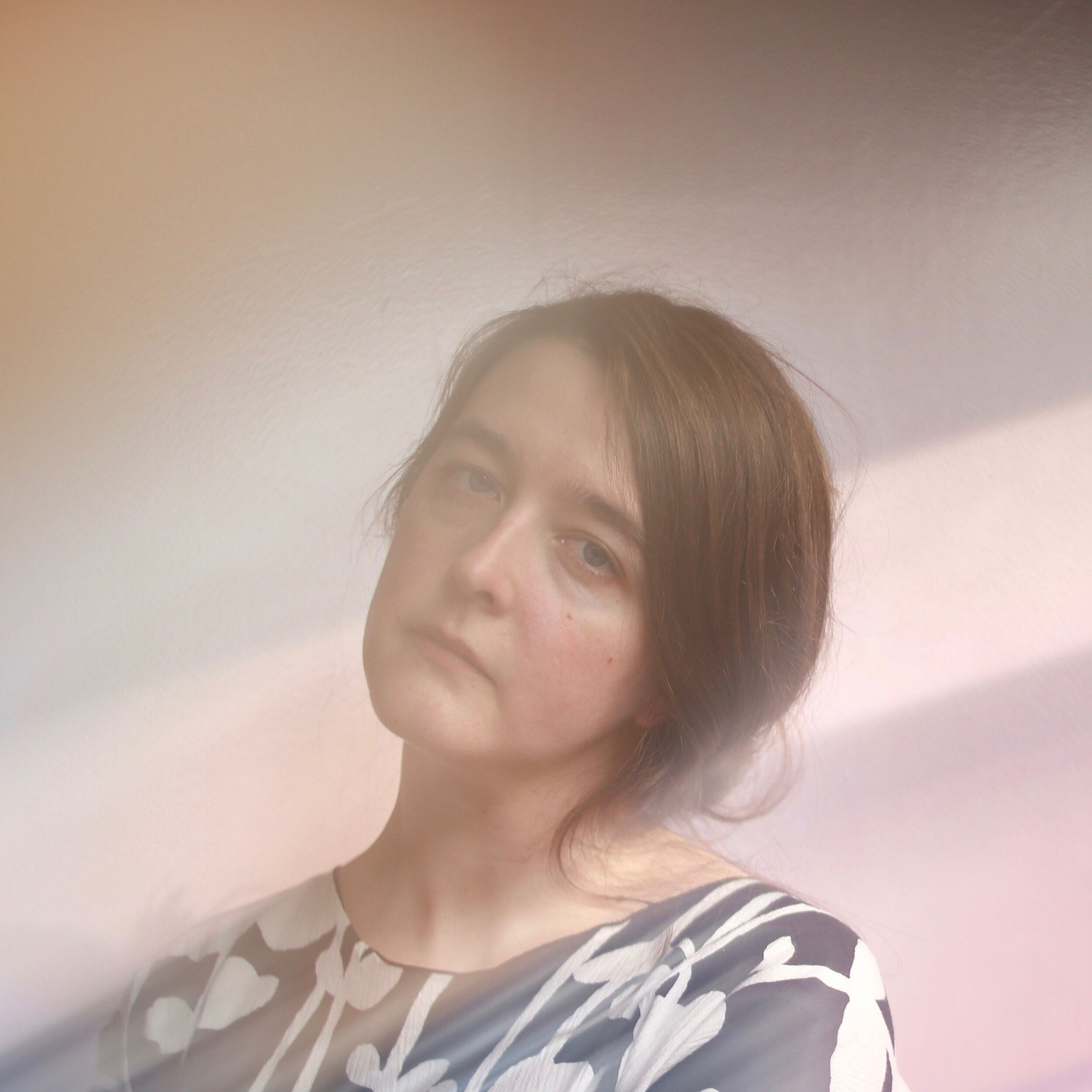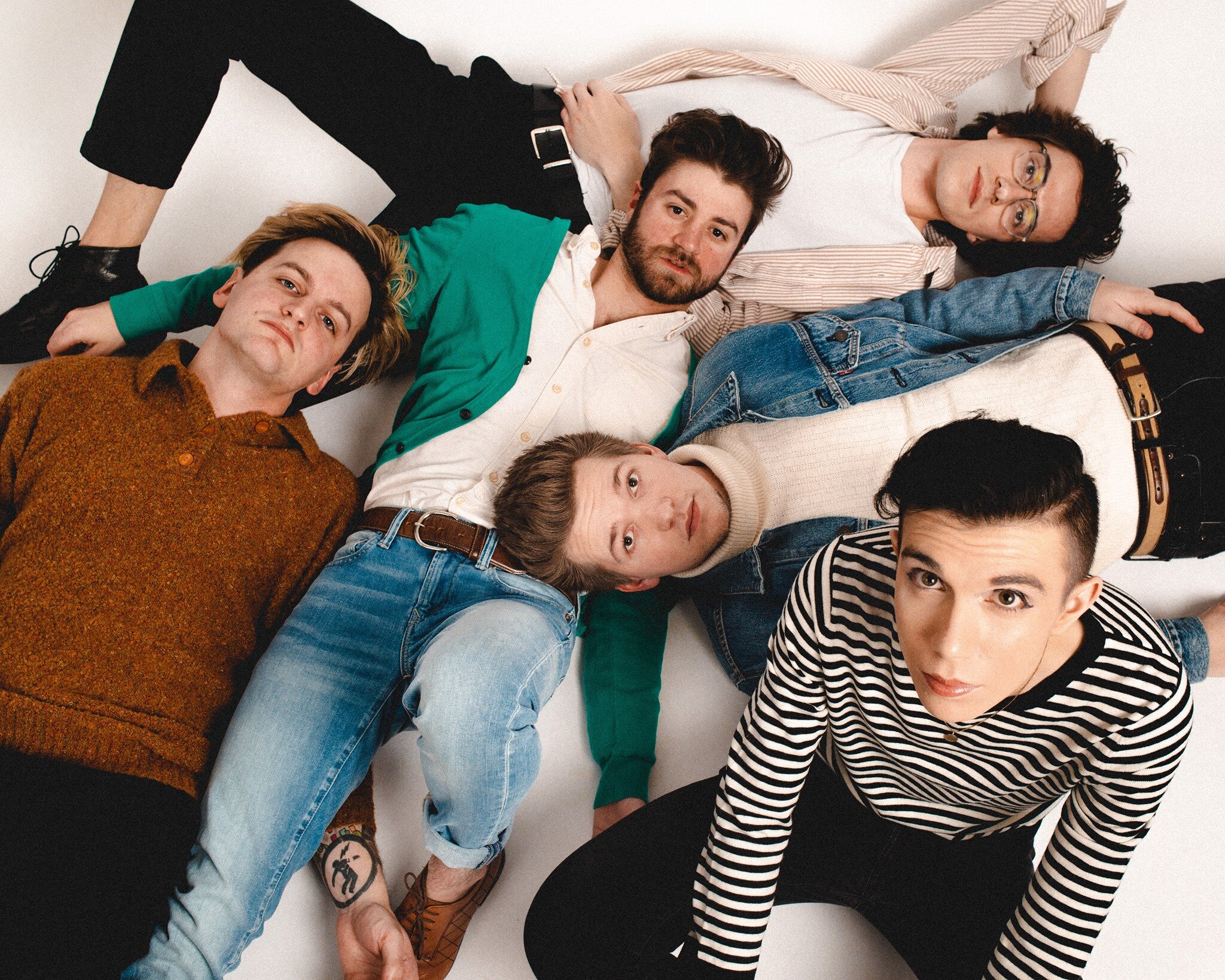Getting Heavy with Emily Jane Powers
Photo by Rachel Winslow.
For better or worse, through all of the loss we collectively experienced in 2020 and the first half of 2021, the pandemic has undoubtedly provided us all with more perspective. For many of us, that meant reprioritizing new ways to stay connected to family and friends, or becoming more attuned to our mental health. For an artist like Emily Jane Powers, it meant the chance to go back to the drawing board and the time to be even more intentional with her artistic process.
“I spent a lot of time trying to figure out what my goals are with music and why I do certain things,” Powers says about her writing and creating during the past year and a half. With that same persistence and purposeful outlook, Powers crafted her fourteenth studio album Isometry, which debuted last month on June 18th. While Powers has always been very vulnerable with her songwriting and often opened up about mental health in the past, she set out to shift the medium in which she communicated those themes this time around. “One of the big goals of this record was to speak through the guitar, and to have that be the main voicing,” Powers says, stating that led her to tap further into the works of Thin Lizzy and Marnie Stern as a source of inspiration. “I tried to channel that and have the guitar really speak for me. With my last record Restless, I felt like I was saying things with my voice in a way that felt very vulnerable, so I was attracted to the guitar voicing in a way to sort of retreat from that.”
Despite the influence that they provided to Isometry’s focal point, Powers admits she hadn’t really listened to much of Thin Lizzy before this project took shape. “I went back to a lot of classic rock and started exploring with stuff that I sort of missed in my childhood. I got into Alice Cooper and Ozzy Osbourne and other stuff like that and just focused on using the guitar as different voicing. I have always loved indie rock and indie pop, but the guitar is sort of in the background in a lot of that music and I wanted to listen to music that was using that guitar in a way that I didn’t know how to,” she adds.
In tracks like “Blue Black Grey White” and “None to Come,” listeners still experience a sweeping range of Powers’ vocals— from gentle and serene to raw and gritty, there’s an emotive power behind the vocals throughout the record. Yet there’s a definitive correlation between the tones and the patterns of the guitar on this record and the way the music pulls at its listeners’ emotions— something that Powers and her band set out to convey on these tracks. Powers describes the emotion that the parallel thirds used by Thin Lizzy evoke from her, stating “I get weepy! There’s something that gets me really emotional with that interval that’s used. It doesn’t really matter what instrument it is, but when it was happening with the guitars, I kept noticing it again and again.” It was that emotional reaction that caused her to tap into using specific guitar styling to express herself.
Isometry’s focus on instrumentation and the escape that music can provide shines through on three instrumental tracks that Powers recorded at home— initially intending for them to be a project of their own. The first of the three tracks, entitled “Greenish,” kicks off the entire record, enveloping us in a swirl of ambient city noises and reverie. In a similar fashion, “Yellowish” and “Bluish” also have an escapist and therapeutic sentiment to them, providing me with a sonic haven whenever I listen to them. My first instinct when I saw the colorful song names was that they were a nod to the phenomenon of synesthesia, but as it turns out, Powers has never experienced that sensation and the colorful names originated from a more unique perspective. “This is going to sound a little bit strange, but I went out with a camcorder and I filmed trash that was a particular color. I’m interested in trash as a medium in a way. So I would go on walks in the pandemic as a way to calm myself and center myself…and film trash. I’d be like ‘ok I’m gonna look for blue trash today.’ I wasn’t like rummaging through cans, it was stuff that was on the ground, so I’d film it really close up and gather all of this footage. Then go home to put the footage on a loop and just write.” Eventually, thanks to a nudge from producer Erik Hall, this project merged with the remainder of the songs on Isometry. “That was another project that I was starting and didn’t ever really think I was going to share with anyone and Erik Hall encouraged me to merge the two different halves together. That’s why it’s sort of interspersed with these big rock songs and then these sort of chaotic, instrumental tracks that I recorded at home,” Powers says.
Powers humbly credits Hall and her entire band— Alec Harryhausen, Chris Smith, and Ryan Hurnevich— with much of the finished product, even including the specific tracklist of the album. If you’re a true music fan and still understand the power of listening to a full album, front to back, then you can appreciate an impeccably assembled tracklisting. As is the case with Isometry, a great track list reads like a good book or movie plot, allowing the songs to flow into each other like a scene or chapter fading into the next. “That tracklisting is a product of so much conversation with my band and Erik. Coming to that order was very much a separate art form that I definitely didn’t do alone,” Powers states.
The group of musicians also assisted Powers with turning her intention and visions with guitar styling into reality, and she credits Ryan Hurnevich with much of that task. “I wrote pretty much all of the guitar parts, but there were some ideas that I had that i just couldn’t play it as good as Ryan could. He’s got a totally different voicing than I do, and I felt like I wanted to play to what his strengths were.” One specific example of this dynamic playing out is in the song called “None to Come.” Powers said she wrote that track about three years ago, following the 2018 release of Restless. “’I’d been playing it and playing it, so I had Ryan come in. He joined the band and I wanted him to write a solo because I felt like I had written all the things to that song that I wanted to do and it just wasn’t sticking. Ryan came in and wrote this beautiful solo for it, and so I felt like the things that I couldn’t do, I was able to do in collaboration with my band and Ryan. Or Ryan was able to just make it happen. I felt like having his voicing in the band inspired me to have a larger sound and to play things differently. It’s cool to be able to be standing next to someone playing guitar, playing things that you wrote but in different voicing. You’re like wow, I didn’t know that my ideas could exist like that.”
Although the goal of focusing more on the guitar styling over any other instrument or component of the songs certainly challenged Powers, she was able to conquer the challenge thanks to that very spirit of collaboration. Speaking of the power behind collaboration, other snippets of the record came to be from ambient recordings and thoughts of close friends and relatives that Powers collected. This style of sourcing from those close to her also acted as a nod to some of her earlier material. “In the early to mid 2000s, I would use voice messages that people would leave me, in my songs. I would cut it up and use it as part of transitions or inspiration for a song. [For this album] I asked my dad and my friends in New York, London, Minneapolis and all over the place to just record what was happening around them. It was sort of a throwback and grounding myself back into older stuff and old habits,” Powers says.
Thoughts contributed from others close to Powers came into play with the song “Instead I,” a song that’s about anxiety and depression and sort of breaking that cycle of anxious thought. “I wanted to have other people contribute to that song to share their thoughts on the subject or the ways that they interrupt that cycle. Some of them are old friends and creatives, and it was a nice way for them to reflect on their own creative process,” Powers says. Throughout our conversation, Powers and I talked about the silver lining of the pandemic being that it allowed so many to reprioritize their mental health and open up more about their struggles. “Mental health has been at the forefront of what I’ve been writing for what feels like the past decade. The conversation has opened up a lot more in the pandemic and post-pandemic life in a way that I feel really excited about. To be able to share more explicitly with people ‘hey this song is about depression and anxiety’ in a way that might not be obvious to people,” she says. Funnily enough, Powers began the process of reaching out on input for “Instead I” before the pandemic. “Then what happened, after the pandemic started, that’s when I actually started getting the responses. I started getting my friends to respond in March, which I think heightened my friends' chances of wanting to talk about it because there was a lot of anxiety in the air. I think that sharing the song now, a lot of people have connected to it in a way so there’s that pay off in the end. I still give credit to my collaborators for being vulnerable and being brave to share their thoughts,” Powers adds.
Powers and her band weaved all of these pieces together during the recording process at Decade Studio in Chicago. It was in the studio that they were able to flesh out the massive sounds of heavier guitars and hard rock drums, mostly recording in a live band setting to capture the energy. Everything culminates in the final track “Warm Void Thoughtless,” which features ethereal, harmonious vocals and a sweeping finale that calls back to former chapters of the record. With each listen of Isometry, I notice something new and further appreciate every ounce of care and nuance that Emily Jane Powers and her band poured into the project.
Tune into Isometry in full below, or be sure to order your own copy of the record here. If you’d like to hear the songs performed live, in person, don’t snooze on snagging a ticket to the release show at Schubas on August, 5th.
Finally, keep up with Emily Jane Powers on Instagram and Facebook.


